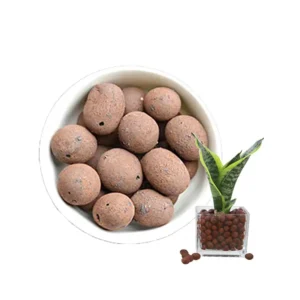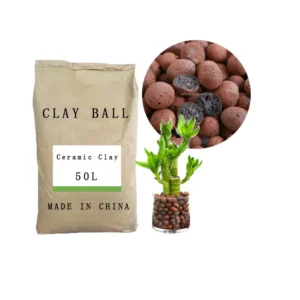In the world of modern gardening and plant cultivation, hydroponics has emerged as a popular alternative to traditional soil-based methods. One of the key components in hydroponic systems is the growing medium, and clay balls have been a subject of interest among growers.
Clay balls, also known as expanded clay pebbles or leca balls, are small, porous spheres made from clay. They have several characteristics that make them potentially suitable for hydroponics. Firstly, their porous nature allows for excellent air circulation around the roots of plants. This is crucial in hydroponics as it helps prevent root rot and provides oxygen to the roots, promoting healthy growth. For example, in a study conducted by a leading agricultural research institute, it was found that plants grown in a hydroponic system with clay balls as the medium had a significantly lower incidence of root diseases compared to those in other less porous media.

Secondly, clay balls have good water retention properties. They can hold a certain amount of water within their pores, which is gradually released to the roots as needed. This helps maintain a consistent moisture level for the plants. In a commercial hydroponic farm in the Netherlands, the use of clay balls has enabled them to reduce water usage by approximately 30% while still ensuring optimal plant growth.
Another advantage of clay balls is their physical stability. They do not break down easily over time, providing a long-lasting support structure for the plants. This is especially important in large-scale hydroponic setups where frequent replacement of the growing medium can be costly and time-consuming.

However, there are also some considerations when using clay balls in hydroponics. One potential drawback is their relatively high cost compared to some other growing media. This can be a significant factor for small-scale growers or those on a tight budget. Additionally, if not properly cleaned and sterilized before use, clay balls can harbor pathogens or contaminants that may affect plant health. Growers need to ensure that they source high-quality clay balls from reliable suppliers and follow proper sterilization procedures.
In conclusion, clay balls can be a suitable option for hydroponics, offering benefits such as good air circulation, water retention, and physical stability. However, growers should carefully weigh the advantages and disadvantages based on their specific needs and circumstances. With proper management and attention to detail, clay balls can contribute to successful hydroponic plant cultivation.

